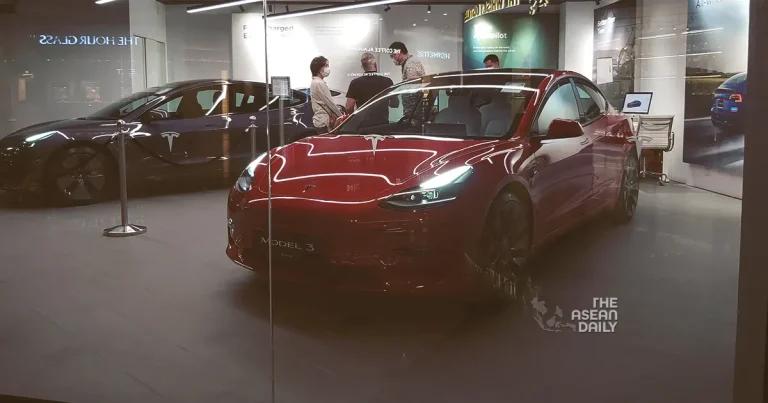9-9-2024 (SINGAPORE) Singapore is poised to become the frontrunner in electric vehicle (EV) adoption across South-east Asia, according to a recent report by Bloomberg’s energy research service, BloombergNEF. The study projects that by 2040, a staggering 80 per cent of all passenger vehicles in the city-state will be electric, significantly outpacing its regional counterparts.
This forecast places Singapore well ahead of the regional average of 24 per cent, with Thailand following at 41 per cent, Vietnam at 31 per cent, Indonesia at 25 per cent, Malaysia at 15 per cent, and the Philippines at 10 per cent. The report, released on 26 August, highlights Singapore’s already impressive EV adoption rate, which stood at approximately 19 per cent of all vehicles sold in 2023, the highest among the six South-east Asian countries studied.
The momentum appears to be building rapidly, with EVs accounting for 32.1 per cent of new car registrations in just the first seven months of 2024, according to data from the Land Transport Authority. This surge in adoption is supported by Singapore’s robust charging infrastructure, boasting the highest density of public EV charging stations in the region, with one station for every three EVs in 2023.
BloombergNEF’s report identifies falling battery prices as a crucial factor driving EV adoption. Komal Kareer, the report’s author and researcher on clean transport in South and South-east Asia, explains, “Falling battery prices will reduce the upfront cost of the vehicle and make EVs competitive with gasoline-fuelled vehicles.” The report predicts a 17 per cent decrease in battery prices each time the total number of batteries on the market doubles, building on the remarkable 90 per cent drop in battery pack prices between 2010 and 2023.
Associate Professor Walter Theseira, a transport economist from the Singapore University of Social Sciences, attributes Singapore’s projected lead in EV adoption to several unique factors. “The Singapore vehicle market is quite different from that of regional countries,” he notes, pointing to the certificate of entitlement system that encourages car owners to replace their vehicles every decade. This system, combined with policies promoting EV adoption – such as the ban on new diesel-powered car and taxi registrations from 2025 – creates a conducive environment for rapid electrification.
The compact nature of Singapore also plays a role, eliminating concerns about “range anxiety” that might deter EV adoption in larger countries. However, Prof Theseira highlights that the reliance on public charging infrastructure could present challenges, as “only a very small percentage of people will have the ability to install chargers in their homes.”
Beyond personal vehicles, the report also examines the electrification of public transport across the region. While Thailand currently leads in electric bus deployments, with ambitious plans from both public and private operators, Singapore has set its own targets. The city-state aims to have half of its 6,000 public buses running on electricity by 2030, and all public buses operating on cleaner energy by 2040.
Singapore’s broader vision, as outlined in its Green Plan, is for all vehicles to run on cleaner energy by 2040. This includes mandating that all new car and taxi registrations from 2030 must be of cleaner-energy models, and establishing 60,000 EV charging points by the same year.




